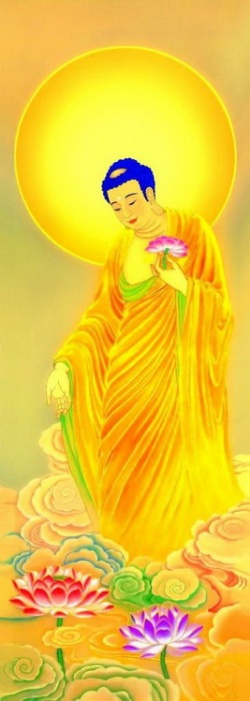Generosity
Generosity (Dāna or cāga) is a glad willingness to share what one has with others. In Buddhism, generosity is seen as a strategy to weaken Greed, a way of helping others and a means of lessening the economic disparities in society. Since it is one of the cardinal Buddhist virtues, The Buddha has a great deal to say about giving and sharing. He said we can give to guests, to those setting out on a journey, to the sick, the hungry, the poor and the first fruits to monks, nuns or spiritual teachers (A.III,41). The Jātaka says: ‘From little give a little, from middling give middling and from much give much. There is no excuse for giving nothing.’(Ja.V,387). When we give or share we should, The Buddha advised, give with respect, thoughtfully, with our own hand if possible, give things that will benefit the recipient and after having considered how our gift might benefit them (A.III,172). With typical skill and insight, he asked us to see beyond the actual article we give to what it can actually do for others. So, for example, he pointed out that: ‘In giving Food one also gives Life, Beauty, Happiness, strength and intelligence and in giving these five things one also partakes in them, both now and later.’ (A.III,42). While seeing the value of providing others with their material needs, The Buddha reminded us that the highest, the most helpful and precious thing we can give to others is the Dhamma (Dhp.354). However, one has to get things in perspective. Giving a sick person a book on Buddhism when they are in desperate need of medicine or a doctor is not only inappropriate, it is also void of Wisdom and Compassion. This point is highlighted by the incident in the traditional Life of The Buddha. Once a man was so determined to hear the Dhamma that he came to where The Buddha was speaking straight after a long day’s work. He had not even given himself time to rest, bathe or eat. Having come to know of this, The Buddha asked the monks to give the man something to eat before the Dhamma talk began (Dhp-A. 262).
These are the five rewards of generosity: One is dear and appealing to people at large, one is admired by good people, one's good name is spread about, one does not stray from the rightful duties of the householder, and with the break-up of the body at death, one reappears in a good destination, in the heavenly worlds.
— A V.35 What the miser fears, that keeps him from giving, is the very danger that comes when he doesn't give.
— S I.32 No misers go to the world of the devas. Those who don't praise giving are fools. The enlightened express their approval for giving and so finds ease in the world beyond.
— Dhp 177
If beings knew, as I know, the results of giving and sharing, they would not eat without having given, nor would the stain of miserliness overcome their minds. Even if it were their last bite, their last mouthful, they would not eat without having shared, if there were someone to receive their gift. But because beings do not know, as I know, the results of giving and sharing, they eat without having given. The stain of miserliness overcomes their minds.
— Iti 26
Now on that occasion Princess Sumana — with an entourage of 500 ladies-in-waiting riding on 500 carriages — went to where the Buddha was staying. On arrival, having bowed down, she sat to one side. As she was sitting there, she said to the Blessed One, "Suppose there were two disciples of the Blessed One, equal in conviction, virtue, and discernment, but one was a giver of alms and the other was not. At the break-up of the body, after death, they would reappear in a good destination, in the heavenly world. Having become devas, would there be any distinction, any difference between the two?"
"Yes, there would," said the Blessed One. "The one who was a giver of alms, on becoming a deva, would surpass the other in five areas: in divine life span, divine beauty, divine pleasure, divine status, and divine power..."
"And if they were to fall from there and reappear in this world: Having become human beings, would there be any distinction, any difference between the two?"
"Yes, there would," said the Blessed One. "The one who was a giver of alms, on becoming a human being, would surpass the other in five areas: in human life span, human beauty, human pleasure, human status, and human power..."
"And if they were to go forth from home into the homeless life of a monk: Having gone forth, would there be any distinction, any difference between the two?"
"Yes, there would," said the Blessed One. "The one who was a giver of alms, on going forth, would surpass the other in five areas: He would often be asked to make use of robes; it would be rare that he wouldn't be asked. He would often be asked to take food... to make use of shelter... to make use of medicine; it would be rare that he wouldn't be asked. His companions in the holy life would often treat him with pleasing actions... pleasing words... pleasing thoughts... and present him with pleasing gifts, and rarely with unpleasing..."
"And if both were to attain arahantship, would there be any distinction, any difference between their attainments of arahantship?"
"In that case, I tell you that there would be no difference between the two as to their release."
"It is awesome, lord, and astounding. Just this is reason enough to give alms, to make merit, in that it benefits one as a deva, as a human being, and as a monk."
Dāna - The Development of its Concept and Practice, T. Endo, 1987.

